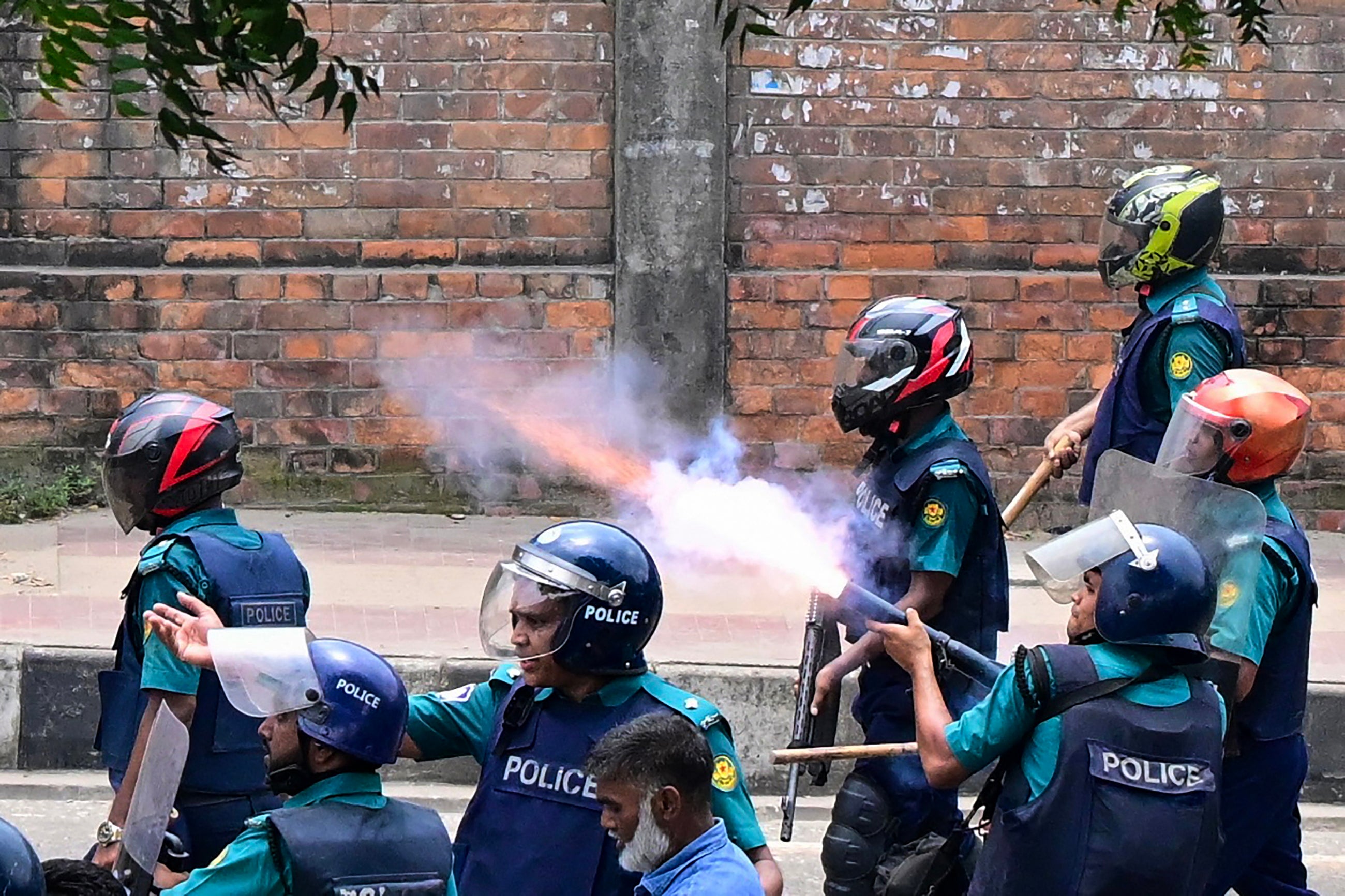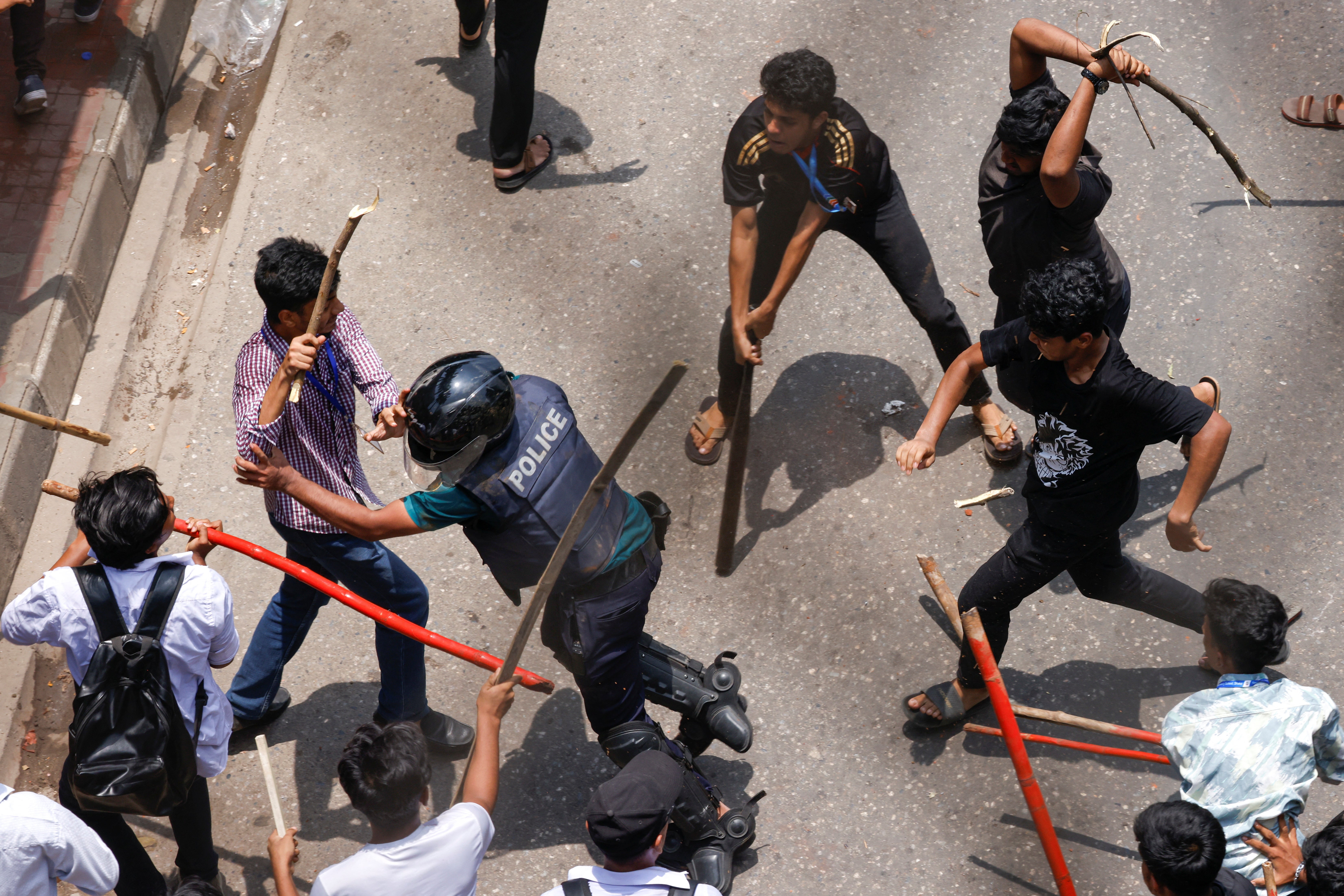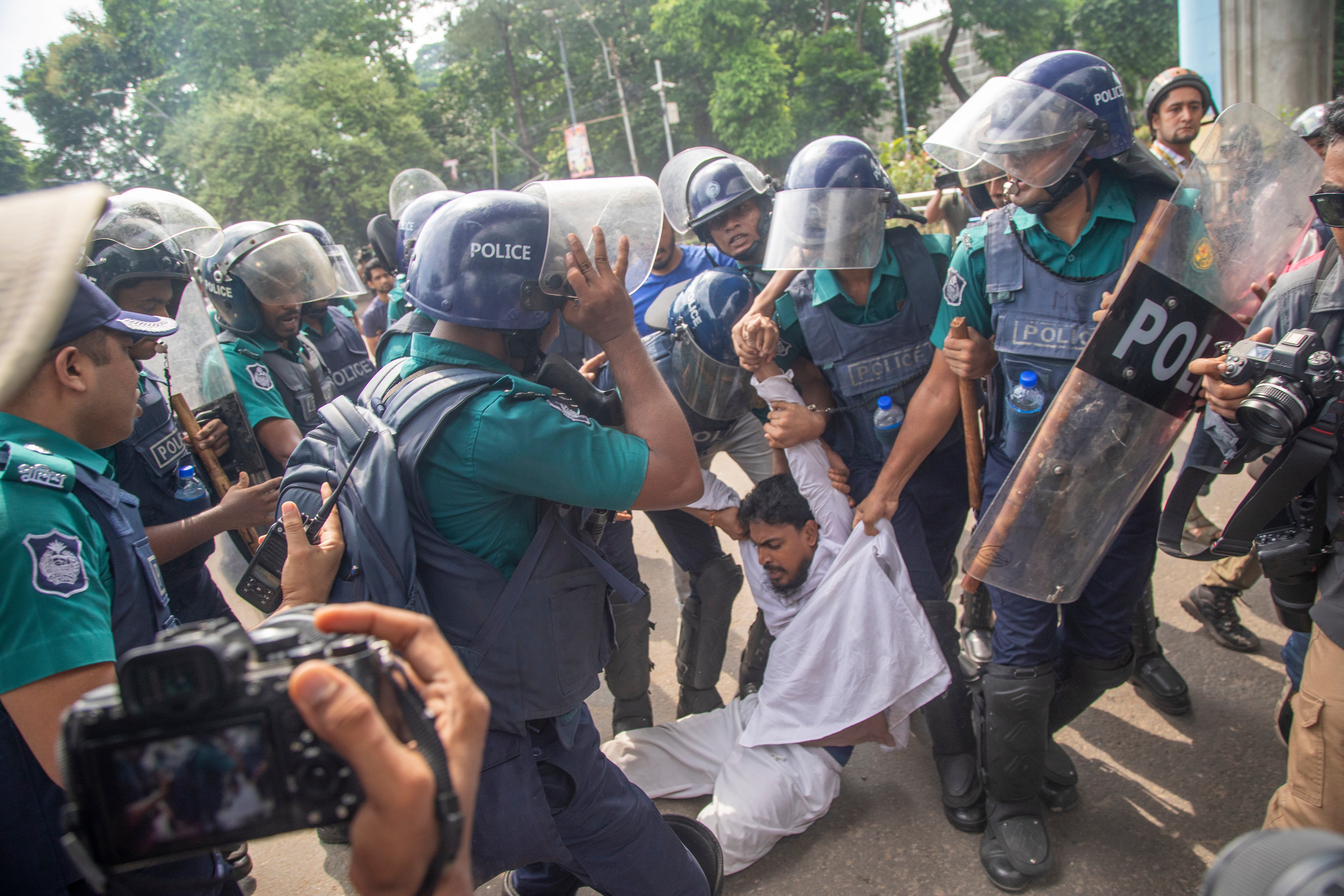India issues Bangladesh travel advisory as students call for nationwide shutdown
Four more people die in fresh clashes between police and anti-quota protesters
Your support helps us to tell the story
From reproductive rights to climate change to Big Tech, The Independent is on the ground when the story is developing. Whether it's investigating the financials of Elon Musk's pro-Trump PAC or producing our latest documentary, 'The A Word', which shines a light on the American women fighting for reproductive rights, we know how important it is to parse out the facts from the messaging.
At such a critical moment in US history, we need reporters on the ground. Your donation allows us to keep sending journalists to speak to both sides of the story.
The Independent is trusted by Americans across the entire political spectrum. And unlike many other quality news outlets, we choose not to lock Americans out of our reporting and analysis with paywalls. We believe quality journalism should be available to everyone, paid for by those who can afford it.
Your support makes all the difference.India asked its citizens in Bangladesh to avoid local travel as police clashed with anti-reservation protesters amidst a call for a nationwide shutdown following the death of at least 10 people.
Hundreds of people have sustained injuries in the weeks-long protests which turned violent this week following clashes and incidents of arson that led to the death of at least three students among other victims.
People in the South Asian country stayed home on Thursday as few shops and offices opened for business in the capital Dhaka. The call for the national shutdown by students, demanding the abolition of 30 per cent reservation in government jobs, drew limited response.
The Indian embassy, in an advisory to its citizens currently living or visiting Bangladesh, asked them to “avoid local travel and minimise their movement outside their living premises”.
Thousands of students have called on the Sheikh Hasina government to abolish the reservation in government jobs for family members of freedom fighters from the 1971 War of Independence. The quota system also reserves jobs for women, disabled people, and ethnic minority groups.

Four people died in the clashes with police in Dhaka on Thursday as hundreds more suffered injures, according to local reports.
Police fired tear gas to scatter stone-throwing protesters as the students showed no sign of slowing the agitation. Sporadic clashes were reported in several places as demonstrators blocked major highways. Witnesses said the riot police fought pitched battles with protesters in several places in Dhaka.
Law enforcement authorities have used "unlawful force" against students during the ongoing ‘Bangla-Blockade’ protest, rights group Amnesty International said, citing witnesses and video evidence. Abu Sayed, a 25-year-old university student, was found dead with bullet wounds in the north-western city of Rangpur.

Mobile services were halted across most of the country while internet services were cut for the first time since 2021, according to cybersecurity company Surfshark. The last time Bangladesh witnessed internet restrictions were during the protests over Indian prime minister Narendra Modi's visit to the neighbouring country.
Advisory on the ongoing situation in Bangladesh. pic.twitter.com/mjXouAST2M
— India in Bangladesh (@ihcdhaka) July 18, 2024
The US embassy in Dhaka said it would close on Thursday and advised its citizens to avoid demonstrations and large gatherings.

A US State Department spokesperson earlier this week condemned the violence against peaceful protesters. "The freedom of expression and peaceful assembly are essential building blocks of any thriving democracy ... Our thoughts are with those who have been impacted by this violence," Mathew Miller said.
On Wednesday the protests led to traffic halts on a major road as police fired tear gas and rubber bullets at protesters, who set fire to a toll booth, blocked streets and detonated explosives, Somoy TV reported.
The protesters announced they would enforce "a complete shutdown" across the country on Thursday in response to security officials' continued attacks on the campus demonstrators. The main opposition Bangladesh Nationalist Party (BNP) said that it would do what it could to make the shutdown a success.
The Bangladesh government on Tuesday shut all public and private universities indefinitely and sent riot police and the Border Guard paramilitary force to university campuses to keep order.
Ms Hasina is the daughter of Sheikh Mujibur Rahman, the man who led Bangladesh to independence. She has so far refused the protesters' demands but promised her government would set up a judicial panel to investigate the deaths after police fired bullets and tear gas to scatter protesters.
Her law minister, Anisul Huq, said the government was willing to talk to the protesters "whenever they want to sit in the discussion, it will happen".
The protests are the first major challenge to Ms Hasina since she secured a fourth consecutive term early this year in an election boycotted by the opposition parties.
The quota system was suspended in 2018, ending similar protests against it. However, a High Court last month asked for the 30 per cent quota for descendants of freedom fighters to be restored.
The Supreme Court last week stayed the High Court’s order for four weeks and the country’s chief justice asked the student protesters to return to their classes.
“Bangladeshi authorities must fully respect people’s right to freedom of peaceful assembly in line with its commitments under international law and its own Constitution and protect peaceful protesters from further harm," said Taqbir Huda, regional researcher for South Asia at Amnesty International.

Join our commenting forum
Join thought-provoking conversations, follow other Independent readers and see their replies
Comments